On Monday, April 20th , the sacred occasion of Matangi Jayanti will be observed, honoring Devi Matangi, the divine embodiment of supreme wisdom, mystical knowledge, and the transcendental power of speech (Vak Shakti).
Revered as one of the Dasha (Ten) Mahavidyas, Matangi Devi is the goddess of Vag-Vidya, the highest knowledge manifesting through speech, music, and sacred sound. She is the force that transforms mere words into mantras, mere thoughts into divine inspiration, and mere intellect into Para-Vidya, the supreme transcendental wisdom. Contrasting the conventional purity associated with Saraswati, Matangi resides beyond the limitations of societal norms, she is the goddess of the unrestrained, the one who bestows wisdom upon those who seek the truth beyond conventions.
Significance & Importance of Matangi Jayanti
Matangi Jayanti marks the divine descent of her energy onto the earthly plane, a time when seekers can attune themselves to her vibrations, invoking her grace for mastery over speech, the arts, knowledge, and deep spiritual realization. Worshiping Matangi on this auspicious day grants the power of eloquence, clarity in communication, and the ability to influence the world through words. She is the guiding force for poets, musicians, scholars, and all those who seek the mysteries hidden within language and sound.
Unlike Saraswati, the goddess of conventional knowledge and purity, Matangi reigns over the realm of forbidden wisdom, shattering societal boundaries to reveal deeper, esoteric truths. She is the goddess of outcasts, rebels, and visionaries, signifying the transcendence of rigid norms in pursuit of divine enlightenment. Her association with speech and intellect is not confined to structured learning; she governs the spontaneous, unfiltered flow of creativity, making her the ultimate muse for poets, musicians, and seekers of hidden truths.
Worshiping Matangi on her Jayanti is said to dissolve mental blockages and empower one with the ability to express profound thoughts with precision and grace. Her blessings are sought for mastery in arts, persuasive speech, and deep intuitive understanding. Tantric practitioners hold this day in great reverence, performing intricate rituals including the chanting of her powerful mantras, fire offerings (homa), and meditative invocations. Unique to her worship, offerings of leftover food symbolize her dominion over that which is cast aside, signifying her ability to transform the mundane into the divine.
For those engaged in mantra shastra, music, and philosophical contemplation, Matangi Jayanti serves as an extraordinary portal to higher consciousness. It is believed that sincere devotion on this day can enhance one's intellectual faculties, refine inner perception, and remove negative influences that obstruct spiritual growth. The significance of this sacred occasion lies in its message: true wisdom flows beyond conventional constraints, revealing itself to those who dare to embrace the uncharted depths of divine knowledge.
Through her grace, seekers are guided beyond superficial understanding into the luminous realms of self-realization and boundless creativity. The festival also holds astrological significance, as it is believed that the alignment of celestial bodies during this time enhances the spiritual energy available to devotees. Engaging in rituals and prayers on Matangi Jayanti is thought to harness these positive influences, promoting mental clarity and artistic expression.
Festival Date, Time, Muhurat & Tithi
Matangi Jayanti on Monday, April 20, 2026
Key Timings for Matangi Jayanti 2026:
Tritiya Tithi Begins - 10:49 AM on Apr 19, 2026
Tritiya Tithi Ends - 07:27 AM on Apr 20, 2026
Please note that the specific Muhurat for Matangi Jayanti Puja may vary based on location and local customs. Devotees are advised to consult their local Panchang or astrologer to determine the most auspicious time for performing the Puja.
Story of Matangi Jayanti Festival
The legend of Goddess Matangi’s emergence from the eyes of Sage Matanga is deeply rooted in the esoteric traditions of Hinduism, particularly within the framework of the Mahavidya cult. This story reflects the divine interplay between intense penance (tapasya), the manifestation of wisdom, and the transformative power of the Goddess.
Sage Matanga, a revered ascetic, was known for his unwavering devotion and relentless pursuit of transcendental knowledge. It is said that he performed severe austerities (tapas) in the dense forests, meditating upon the cosmic truth beyond the grasp of conventional wisdom. His penance was so intense that it radiated an immense spiritual energy, causing the celestial realms to tremble and compelling the divine forces to respond.
Recognizing his sincerity and the purity of his devotion, the Supreme Goddess, in her Tantric form, decided to manifest as Matangi. It is believed that as Sage Matanga’s inner vision reached its zenith—where knowledge transcends structured learning and flows into intuitive realization—a luminous, enchanting radiance emanated from his eyes. This divine effulgence condensed into the resplendent form of Goddess Matangi, signifying the embodiment of the ultimate, unrestrained wisdom that lies beyond conventional boundaries.
Her emergence from his eyes holds deep symbolic meaning. In Hindu philosophy, the eyes represent perception, insight, and enlightenment. The birth of Matangi from the sage’s eyes suggests that she is not merely a goddess of intellectual learning but also of divine intuition and artistic mastery. Unlike the structured, disciplined knowledge associated with Goddess Saraswati, Matangi’s wisdom is fluid, unconventional, and boundless—accessible to those who seek truth beyond societal norms.
Upon her manifestation, Matangi is said to have blessed Sage Matanga with supreme knowledge, granting him mastery over speech, music, and mystical sciences. She revealed to him the secrets of mantras, empowering his words with divine potency. From that moment, she became the patron goddess of poets, musicians, and those who wish to express the inexpressible through art, music, and spiritual discourse.
This legend also highlights Matangi’s connection with those who exist outside the traditional structures of society—outcasts, artists, and free thinkers—who often receive divine wisdom in unconventional ways. She symbolizes the idea that true knowledge is not confined to the learned elite but is available to all who seek it with pure devotion.
Thus, the story of her emergence from Sage Matanga’s eyes is a profound metaphor for the moment when structured learning dissolves into boundless inspiration, and divine wisdom flows unhindered, transforming the seeker into a conduit of celestial creativity and enlightenment.
How to celebrate Matangi Jayanti
Matangi Jayanti is celebrated with deep reverence by devotees who seek the blessings of Goddess Matangi for wisdom, eloquence, artistic creativity, and spiritual growth. Observing this sacred day involves a combination of ritualistic worship, mantra chanting, meditation, and offerings, all performed with devotion and sincerity.
The day begins with devotees taking an early morning bath and wearing clean or preferably green-colored clothes, as green is considered sacred to Goddess Matangi. A home or temple altar is set up with her idol or picture, adorned with fresh flowers, particularly red and yellow ones. Incense sticks, diyas (lamps), and sacred offerings are arranged to invoke her divine presence. Devotees place special importance on offering cooked rice, honey, betel leaves, and sweets, as these are believed to be among the goddess’s favored items.
Chanting of Matangi mantras is a key part of the celebration. Devotees recite the powerful Matangi Beej Mantra or the Matangi Gayatri Mantra to invoke her divine blessings. The chanting should be performed with unwavering concentration, as it is believed to enhance one’s speech, intellect, and artistic abilities. Advanced practitioners and tantrics may engage in specialized mantra sadhanas, meditative techniques, and rituals that involve deeper esoteric invocations.
One unique aspect of Matangi worship is the offering of food that has already been tasted or partially consumed, symbolizing her role as the goddess who transcends societal norms and grants wisdom even to those marginalized or overlooked. This offering represents the breaking of rigid notions of purity and impurity, reinforcing the idea that divine wisdom is accessible to all, irrespective of status.
Homas (fire rituals) are performed by those following a more elaborate observance. Offerings such as ghee, sesame seeds, and other sacred substances are poured into the sacred fire while chanting Matangi’s names. This ritual is believed to purify the devotee’s mind, enhance their communication skills, and attract spiritual prosperity.
Another important tradition is feeding young girls (Kanya Puja), symbolizing the worship of the divine feminine. Devotees invite young girls, offer them food and gifts, and seek their blessings. This act is believed to invoke the goddess’s grace and ensure success in one’s artistic and intellectual pursuits.
Observing a day-long fast or consuming only sattvic (pure) foods is another way devotees express their devotion. This fast is undertaken to purify the body and mind, allowing one to connect more deeply with the goddess’s energy. Those who are unable to fast completely may opt for a fruit-based diet or light vegetarian meals.
In the evening, devotees gather for kirtans (devotional singing) and storytelling sessions recounting the significance of Goddess Matangi. Meditative practices, visualization techniques, and deep contemplation on her attributes help devotees attune themselves to her divine wisdom. Some seekers spend the night in silent meditation, focusing on inner transformation and seeking divine guidance in artistic and intellectual pursuits.
As the celebration concludes, devotees express gratitude to Goddess Matangi, praying for continued wisdom, clarity, and spiritual elevation. They distribute prasad (blessed food) among family members and visitors, sharing the divine grace received through the day’s observances. This sacred festival ultimately serves as a means to dissolve mental barriers, awaken higher consciousness, and align oneself with the unrestricted flow of divine knowledge and creative expression.
Matangi Jayanti Puja Vidhi (Puja Procedure)
Matangi Jayanti Puja is performed with great devotion to seek the blessings of Goddess Matangi, the goddess of wisdom, eloquence, and artistic excellence. Observing this puja with sincerity is believed to remove obstacles in speech, enhance intellectual capabilities, and bring spiritual prosperity.
The rituals follow traditional methods that align with Tantric and Vedic practices, ensuring the worshipper is fully immersed in the divine energy of the goddess.
- The puja begins early in the morning with a purifying bath, symbolizing the cleansing of the body and mind. Devotees wear clean or green-colored clothes, as green is associated with Goddess Matangi.
- The altar is then prepared by placing an idol or image of the goddess on a sacred cloth, adorned with fresh flowers, especially red, yellow, or green.
- The altar should also have incense sticks, diyas (lamps), and offerings such as fruits, sweets, and coconut.
- Once the setup is complete, the puja starts with the invocation of Bhagwan Ganesha, seeking his blessings for a successful ritual.
- This is followed by the Sankalp (sacred resolution), where the devotee mentally commits to performing the puja with full devotion.
- Kalash Sthapana (installation of a sacred water pot) is done to symbolize the presence of divine energy.
- Sacred mantras are then chanted to invite Goddess Matangi to bless the devotee’s home and heart.
- The main worship involves offering flowers, turmeric, kumkum, sandalwood paste, and unbroken rice grains while reciting Matangi’s mantras.
- One of the most powerful mantras for this occasion is the Matangi Beej Mantra: 'Aim Hreem Kleem Matangyai Namah' or the Matangi Gayatri Mantra. Chanting these mantras with full concentration is believed to enhance speech, artistic abilities, and spiritual wisdom.
- A unique aspect of Matangi puja is the offering of Naivedya (sacred food), which includes cooked rice, betel leaves, honey, and sometimes food that has already been tasted. This symbolizes her acceptance of all, including those considered outcasts, reinforcing her role as a goddess who transcends societal norms.
- Devotees also perform Kanya Puja , where young girls are worshiped as divine manifestations of Matangi and offered food and gifts.
- Homa (fire ritual) is conducted by those following a more elaborate puja procedure. Ghee, sesame seeds, and other sacred offerings are placed into the fire while chanting Matangi’s 108 names. This ritual purifies the environment, enhances one’s inner clarity, and invokes the goddess’s blessings for speech, music, and wisdom.
- The homa is concluded with the Aarti , waving a lamp before the goddess while singing devotional hymns.
- As the puja concludes, devotees pray for wisdom, eloquence, and artistic excellence while seeking forgiveness for any mistakes in the rituals. The prasad (blessed food) is distributed among family members and devotees.
Observing this puja with devotion on Matangi Jayanti is believed to awaken higher consciousness, refine intellect, and attract divine grace in all aspects of life.
Matangi Jayanti Puja Mantras
Chanting mantras dedicated to Goddess Matangi during Matangi Jayanti Puja enhances spiritual wisdom, speech clarity, and artistic creativity. These sacred mantras invoke her divine presence and bestow her blessings upon the devotee.
Below are the key mantras used during Matangi Jayanti Puja:
Matangi Beej Mantra
॥ ऊँ ह्रीं क्रीं हीं मातींग्यै फट् स्वाहा ॥
“Om Hreem Kleem Hoom Matangyey Phat Swaha”
Significance: I invoke Matangi, the one who destroys the demons by enchanting them first. Illuminate me with true knowledge of inspiration and expression.
Matangi Gayatri Mantra
॥ ॐ उच्छिष्टचाण्डालायै विद्महे मातङ्ग्यै धीमहि। तन्नो देवी प्रचोदयात् ॥
'Om Ucchishta-Chandalayai Vidmahe Matangyai Dhimahi, Tanno Devi Prachodayat'
The Matangi Gayatri mantra invokes her wisdom and grace. Chanting this mantra grants spiritual knowledge and mastery over speech.
Matangi Jayanti Vrat Vidhi (Fasting Procedure)
The fast begins at sunrise with a ritualistic bath, signifying the cleansing of impurities. Devotees wear clean and preferably green-colored clothes, as the color green is associated with Goddess Matangi’s energy. Before beginning the fast, they make a Sankalp (sacred resolution), mentally committing to the observance with sincerity and devotion. The Sankalp can be taken before an idol or image of Matangi while offering flowers and lighting a ghee lamp.
During the fast, devotees abstain from consuming grains, spicy foods, and tamasic (impure) substances like onion, garlic, and non-vegetarian food. Many observe a Nirjala Vrat (fasting without water) for the entire day, while others follow a Phalahar Vrat, where only fruits, milk, and dry fruits are consumed. Those who are unable to maintain a strict fast may opt for a Sattvik Bhojan , consisting of simple, pure vegetarian food like fruits, boiled potatoes, and milk.
Chanting and meditation play a crucial role in the vrat. Devotees spend the day reciting Matangi mantras, such as the Beej Mantra or Gayatri Mantra, to attune themselves to the goddess’s divine energy. Reading or listening to the Matangi Mahatmya (glories of Matangi) from sacred scriptures enhances the spiritual vibrations of the vrat. Engaging in silent meditation and japa (mantra repetition) helps in deepening one’s spiritual connection.
The evening puja is the most significant part of the vrat. Devotees perform Matangi Puja with offerings of flowers, kumkum, turmeric, and special Naivedya (sacred food) such as cooked rice, jaggery, honey, and betel leaves. As mentioned above, an essential feature of Matangi worship is the offering of previously tasted food (Ucchishta), symbolizing her acceptance of all beings, regardless of their social status. This unique tradition highlights the goddess’s transcendence beyond conventional purity norms.
The vrat concludes with Aarti and prayers, expressing gratitude to Goddess Matangi for her blessings. Devotees seek her guidance for wisdom, clarity in speech, and mastery in artistic pursuits. Those who observe a full-day fast may break it the next morning after offering prayers, while others who follow a partial fast may consume a simple Satvik meal after the puja.
Observing Matangi Jayanti Vrat with sincerity is believed to remove obstacles in speech, enhance intuition, and grant divine knowledge. It is not just an act of physical discipline but a deeply transformative spiritual practice, allowing the devotee to transcend worldly distractions and align with the supreme wisdom of Matangi Devi.
Matangi Jayanti Vrat Katha (Traditional Fasting Story)
Once, in the celestial realms, Bhagwan Vishnu and Goddess Lakshmi decided to visit Mount Kailash, the abode of Bhagwan Shiva and Goddess Parvati. The divine couple, known for their unparalleled grace and wisdom, arrived amidst great reverence, and their presence was honored by the entire cosmic assembly. Goddess Parvati, the embodiment of supreme motherhood and hospitality, desired to offer them the finest feast ever prepared in the three worlds. With great care, she arranged an exquisite banquet, comprising the most divine and nourishing foods, infused with the sacred essence of her love and devotion.
As the deities partook in the celestial meal, the atmosphere was filled with divine radiance, the air imbued with the fragrance of sacred offerings. However, in a moment that would alter cosmic history, a few morsels of food slipped from the hands of the deities and fell to the ground. While in the earthly realm, such an occurrence would be considered insignificant, in the spiritual dimensions of Kailash, where every act carries profound meaning, this event was no mere accident. The fallen food, still pulsating with divine energy, did not go unnoticed by the forces of the cosmos.
From these very remnants, an extraordinary transformation took place. A luminous glow emerged from the sacred ground, slowly taking the form of an enchanting maiden of unparalleled beauty and radiance. Her form shimmered with an ethereal greenish-blue hue, symbolizing knowledge that exists beyond conventional boundaries. Her eyes sparkled with the wisdom of the infinite, and her presence exuded an aura of unrestrained power, yet infused with maternal compassion. As she stood before the assembled deities, she expressed an unusual yet profound desire—to consume the very remnants of the celestial feast that had been inadvertently discarded.
The divine assembly was momentarily perplexed. In traditional Vedic customs, sanctified food, once consumed or left over, was not considered suitable for offering. Yet, here was a being of divine origin, not only emerging from those very remnants but also expressing a deep yearning to partake of them. Bhagwan Shiva, ever the knower of cosmic mysteries, recognized the profound significance of this event. He understood that this maiden was no ordinary being—she was a manifestation of a higher cosmic force, one that transcended societal conventions and redefined the very notion of purity.
With great reverence, the deities granted her request, offering her the sacred leavings as a mark of acceptance. In that moment, she was revealed as Goddess Matangi, the deity who embraces what is discarded, the goddess who transforms the rejected into the revered, the outcast into the enlightened. She was declared a form of Mahavidya, embodying wisdom, eloquence, and mastery over all forms of art and speech. Unlike Saraswati, who represents structured knowledge, Matangi was the force of unrestrained wisdom, the kind that flows beyond the limitations of tradition.
This divine occurrence signified a profound spiritual truth—that true wisdom and divinity are not confined to conventional notions of purity or hierarchy. Goddess Matangi emerged as the patron of those who exist outside the rigid frameworks of society—poets, musicians, artists, and seekers who express themselves beyond the boundaries of established norms. She became the goddess of the outcast, the rebel, and the visionary, offering her boundless grace to all who seek enlightenment, regardless of their social standing.
From that moment on, devotees began worshiping Matangi Devi, invoking her blessings to attain mastery in speech, artistic expression, and esoteric wisdom. She continues to be revered as the one who imparts knowledge without discrimination, guiding her devotees toward the realization that true divinity is found not in rigid adherence to norms, but in the free and fearless pursuit of ultimate wisdom.
Puja Utensils, Essentials
Rudra Centre brings an extensive collection of Puja Articles which caters to all that is required for daily and special Puja Vidhis. We offer variants of designs and sizes in each category. The list includes handcrafted Puja Mandirs, Puja Pedestals, offering Bowls, Panchpatra, intricately carved Puja Thalis, Abhishek Vessels, in different materials, Pure Silver/German Silver articles like Kalash, set of Shodash Upachara and Several other Puja Articles, which we deliver at your doorstep.
Matangi Puja and Yajna
Goddess Matangi is one of the Mahavidyas or ten Tantric goddesses. She is a ferocious aspect of the Divine Mother Durga. She is said to be the Tantric form of Saraswati who is the goddess of Art, music and learning. She governs speech, knowledge, music, literature, poetry, dance and all other art forms. Worshipping Her one gets supernatural powers mainly gaining control over opponents, attracting people to oneself, and gaining mastery over arts and attaining supreme knowledge.
Benefits of Matangi Puja Online:
- Helps to attain divine grace and blessings of Maa Matangi
- Helps in enhancing wisdom and knowledge
- For success in education and competitive examinations
- Helps in enhancement of attraction powers
- Helps attaining knowledge of the Tantras
- Blesses the Yajman with powers to attain worldly goals
- Helps the devotees to attain enhanced listening and grasping power
- Helps to gain control over the mind and body
- Helps in controlling wavering mind and bad thoughts
- Helps to gain power over the senses
- Brings harmony in life and family relations
- She is also the controller of speech and gives higher learning capabilities
- Offers the Self- Esteem and Offers Self- Discipline
- To get relief from Sex related problems and to improve Sexual Life
Rudra Centre Puja Services is the oldest and most trusted Online Puja Services provider in the world. Over 20 years we have organized Yagnas, Pujas, Homas and Kathas like Ati Rudra Mahayajna, Sahasra Chandi Homa, Akhand Ramayan Paath, Shiva Maha Puran Katha, 4 Prahar Mahashivratri Mahapuja with teams of 100’s of curated priests for the benefit of mankind and our global clientele.
Conclusion
Matangi Jayanti is a profound spiritual occasion that embodies the wisdom, grace, and unconventional power of Goddess Matangi. Her worship transcends the rigid boundaries of purity and impurity, societal norms, and structured learning, guiding devotees toward a higher realization of divine knowledge. The celebration of this sacred day is a reminder that wisdom is not confined to the elite but is accessible to all who seek it with sincerity, devotion, and an open heart.
By observing Matangi Jayanti through fasting, puja, mantra chanting, and deep meditation, devotees align themselves with the goddess’s transcendental energy, which bestows eloquence, creativity, and inner illumination. The unique practice of offering previously tasted food symbolizes her acceptance of all, breaking the illusion of separation and reinforcing the idea that the divine resides even in what society overlooks. This aspect of Matangi’s worship serves as a call to embrace inclusivity, reminding us that true wisdom flows unhindered, beyond restrictions of caste, status, or convention. Furthermore, Matangi Jayanti reinforces the idea that true enlightenment comes from within. The goddess’s association with the marginalized and the unconventional teaches that wisdom is not dictated by external appearances or societal validation but is a force that emerges from the depths of devotion and self-awareness. Her blessings inspire one to embrace individuality, think beyond traditional limitations, and cultivate an unshakable connection with the divine.
In essence, Matangi Jayanti is an occasion to honor the sacred power of speech, wisdom, and artistic expression, allowing devotees to invoke the goddess’s grace in their lives. Whether one seeks success in creative pursuits, mastery in intellectual endeavors, or a deeper understanding of the self, the worship of Matangi Devi provides a path to attaining these divine gifts. As the celebration concludes, devotees carry forward the energy of the day, striving to express truth fearlessly, cultivate divine knowledge, and live with a spirit of boundless creativity, forever guided by the luminous presence of Goddess Matangi.


-in-Astrology.jpg)
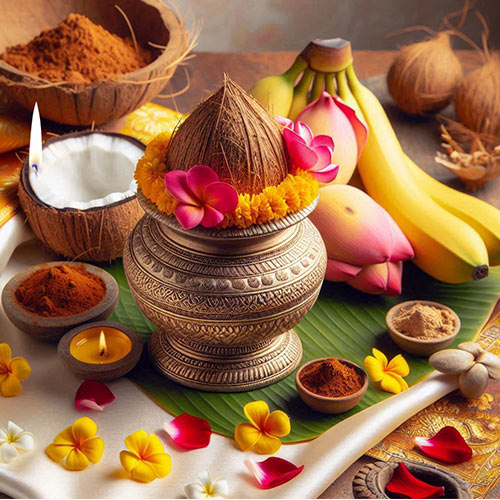

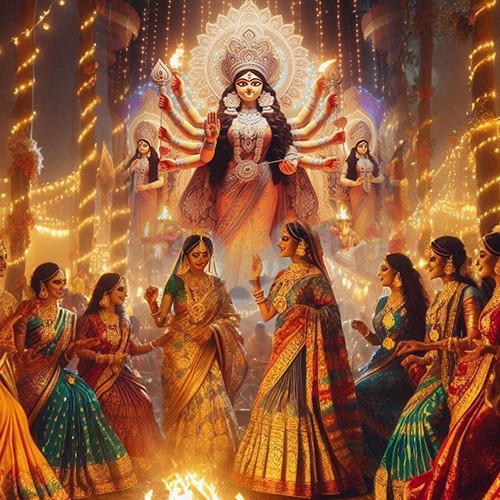
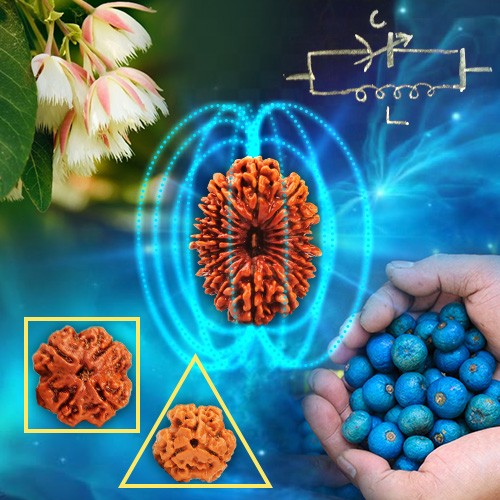

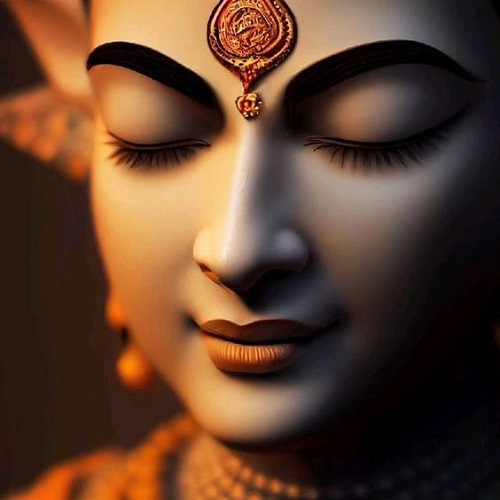
.jpg)
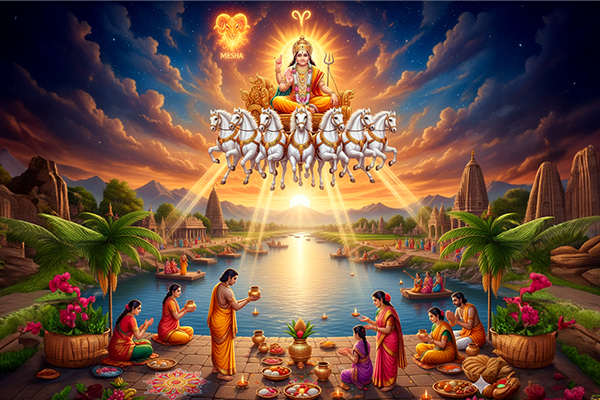

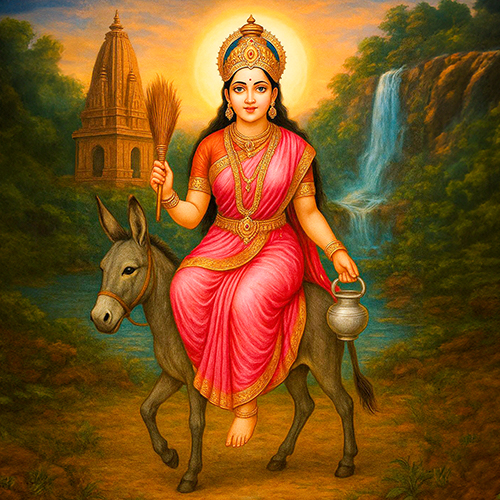
Comments 0
Leave your thought here